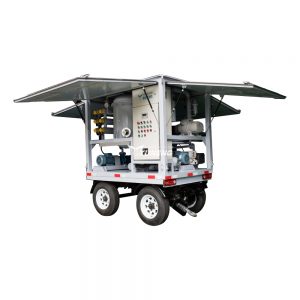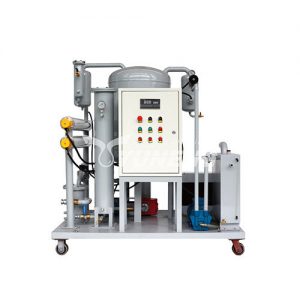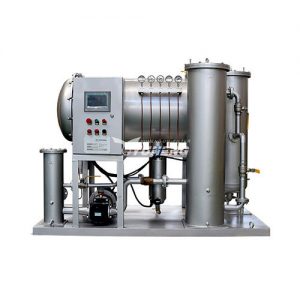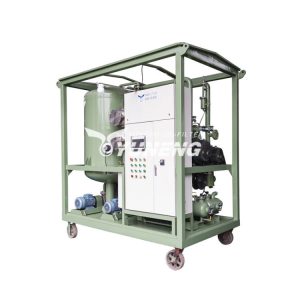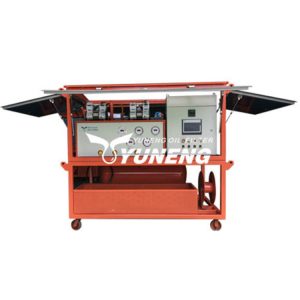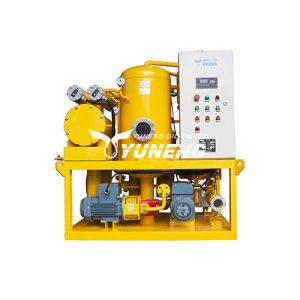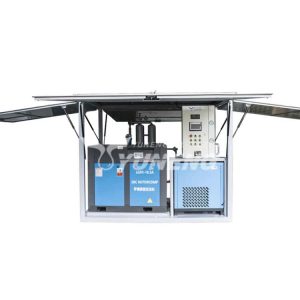
General Guidelines For Oil Purifiers
- 2021-10-22
The quality of the oil determines the service life and productivity level of the equipment. Clean engine oil will ensure its complete use efficiency over time. Therefore, it is necessary to ensure the cleanliness of the engine oil during use and take certain measures to purify it. Oil Purifier is the best choice.
The oil purification system supports the removal of particulate contaminants in lubricating oil, hydraulic oil or transformer oil. Users can choose the corresponding oil purifier according to different needs. This article will explain in detail the general information about oil purifiers to help you learn more about them.
1. Why Use An Oil Purifier?
Engine oil will ensure the normal operation of machinery and equipment. However, as time goes by, the equipment will generally be oxidized and rusted, the water vapor in the air will penetrate into all parts of the equipment, and the oil will also be contaminated. Among them, oil pollution mainly has the following two situations:
Water pollution: Water is the main cause of corrosion and can lead to expensive equipment replacement and/or maintenance. Water in the oil can cause micro-pitting corrosion on the metal surface and metal-to-metal contact. It encourages brittleness and cracking of steel parts. It also reduces oil viscosity and lubricity.
Solid pollution: Solid particles can cause many operational failures. Particles larger than a given gap size will block the flow, while particles smaller than the gap size will cause erosion and wear, which may completely block the gap and produce microcracks. Solids with dimensions slightly larger or close to the dynamic tolerances between moving parts are the most harmful. They can cause abrasive wear and surface fatigue, which can lead to failure.

The above problems can be solved by using an oil purifier. Clean engine oil helps the equipment to run smoothly. In general, using an oil purifier for purification has the following benefits:
- Remove water and impurities in oil at one time
- Effectively clean solids including small particles
- Low maintenance cost and long service life of the oil purifier itself
- Extend the service life of the equipment
- The low total cost of ownership (TCO)
- Reduce environmental pollution
2. How Does An Oil Purifier Work?
What would happen if you had a bucket of dirty oil and water and then settled it in a quiet place? You will find that after a long time, the oil will separate from the water. If the solid particles are heavy enough, they will also settle to the bottom.
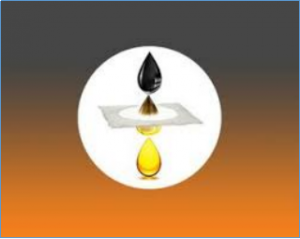
Due to the difference in specific gravity or density, oil will float on the water. Solid particles heavier than water will sink. But the above method will take a long time. In addition, if the density of the mixture is very close, the oil and water may not be separated well.
The oil purifier uses the same principle to separate dirt or water from the oil, but it uses high vacuum and multi-stage filtration to more comprehensively remove excess impurities. The vacuum oil purifier has high filtration accuracy and is suitable for oil treatment, vacuum oiling, and vacuum pumping. The high vacuum process is used for the dehydration and degassing of oil, removing free and soluble water, free and dissolved gases and particulate matter.
The actual structure of the equipment will depend on the oil purifier manufacturer. The most common design has a conical plate to keep the particles together. The larger particles formed will be much heavier and can be separated from the oil more easily.
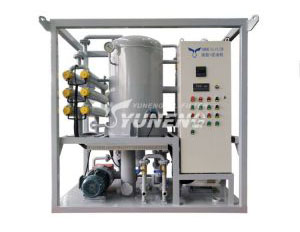
3. What Is The Function Of The Oil Purifier?
Generally, different oil purifiers have different functions, and vacuum oil purifiers have the following standard functions:
- The whole process is physical purification. The oil can be recovered without damaging the additives in the oil
- Fault alarm and display screen, easy to maintain
- Filter it into the primary purifier to filter out larger impurity particles, and heat the oil to the set temperature by a heater
- The heated oil enters the vacuum chamber and is atomized by the atomized atomization, gradually forming a developed oil film area in the efficient separation tower
- Evaporate quickly under vacuum to realize the separation of oil, water and gas
- The separated oil is pumped out by a special oil transfer pump and enters the fine purifier to remove mechanical particles, thereby completing the purification cycle
- The operation is fully enclosed, safe and environmentally friendly
Optional features:
- According to crude oil conditions, 1 to 3 purification cycles can be carried out
- Manual, automatic, timing start, remote control, alarm, etc.
- Can remove decay products and discoloration of acids, sludge, free carbon, deep oxides and other soluble oils
4. What Types Of Oil Purifiers Are There?
According to the type of oil, there are mainly four types of oil purifiers:
Type | Photo | Introduce |
| After the transformer oil is highly refined through the transformer oil purification machina, it can run stably at a high temperature and has excellent electrical insulation properties. | |
| The lube oil purifier machine is suitable for quickly dehydrating, degassing and removing impurities from the high-viscosity waste lubricating oil in the equipment. | |
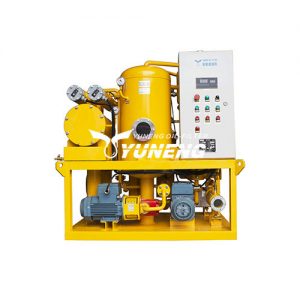 | This turbine oil filtration machine is widely used in power, metallurgy and other industries to purify turbine oil of steam turbines, water turbines, fuel engines and steam turbine units. | |
| This machine adopts a dual-stage primary filtration structure, large-capacity particulate matter, and multi-stage filtration system to ensure high filtration accuracy. |
The above four kinds of oil purifiers can be provided by Yuneng Oil Purifier Manufacturing Company, and you can click on the corresponding links to learn more.
5. What Are The Common Mistakes When Using The Oil Purifier?
Although oil purifiers require very little capital investment, there are still many factors that affect their efficiency, which may result in a higher total cost of ownership (TCO).
- If you need to remove water, you need to choose an oil purifier with a water removal device
- In a world with increasingly strict environmental regulations, single-use items cause higher operating costs and require responsible disposal
- Not all oil purifiers can adapt to the filtration of different impurity content, it needs to be selected according to the specific impurity content of the oil and the clean oil standard
- The purifier needs to be monitored/replaced regularly to avoid clogging and thus prevent particles from passing through the bypass valve
- The pressure fluctuates and decreases when the filter element is contaminated

We provide a full range of customizable oil purifiers so that you can choose the product model that best suits your application needs. Our oil purifier will show a wide range of cost advantages in the following aspects:
- Extend oil life
- increase productivity
- Purify the collected liquid
- Reduce fluid change time
- Reduce the frequency of liquid handling
- Reduce corrosion in fluid systems
- Higher equipment reliability
Yuneng is one of the global competitive companies engaged in the research and manufacture of high-tech oil filtration machine. It can produce 1,000 oil purifiers for other fluids every year. If you have any needs or questions about the oil purifier, please feel free to contact us.
Email: sales@chinaoilpurifier.com
Tel: 86-23-63225705

